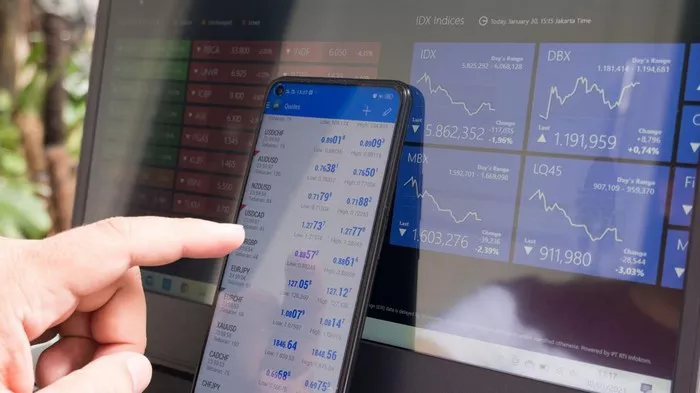In the dynamic world of financial markets, futures trading stands out as a powerful tool for investors and traders seeking exposure to various asset classes, from commodities to financial instruments. While futures contracts share some similarities with stocks, they also exhibit distinct characteristics and trading dynamics. In this comprehensive guide, we delve into the fundamentals of futures trading, exploring the basics of futures contracts, the differences between futures and stocks, common trading strategies, advantages of futures trading, risk management techniques, and considerations for choosing a trading platform.
Understanding the Basics: Unraveling Futures Contracts
At its core, a futures contract is a legal agreement between two parties to buy or sell an underlying asset at a predetermined price on a specified future date. While futures contracts can involve physical delivery of the underlying asset, they are often used for speculative purposes or hedging against price fluctuations. Unlike stocks, which represent ownership in a company, futures contracts are purely financial instruments that facilitate transactions in commodities, currencies, interest rates, and other assets.
One of the key distinctions between futures and stocks lies in their expiration dates. While stocks can be held indefinitely, futures contracts have expiration dates, after which they cease to exist. Additionally, futures contracts offer leverage, allowing traders to control larger positions with a smaller amount of capital. This leverage amplifies both potential profits and losses, making futures trading a high-risk, high-reward endeavor.
Differences Between Futures and Stocks: Recognizing Distinct Characteristics
It’s essential to understand the differences between futures and stocks before venturing into futures trading. While both instruments offer opportunities for investors to profit from market movements, they operate in fundamentally different ways.
Stocks represent ownership shares in a company, entitling shareholders to dividends and voting rights. In contrast, futures contracts are agreements to transact an underlying asset at a predetermined price and date. Futures contracts are standardized and traded on regulated exchanges, while stocks are bought and sold in the equity markets.
Moreover, futures contracts are highly leveraged instruments, allowing traders to control larger positions with a fraction of the capital required to buy stocks outright. This leverage magnifies both potential profits and losses, making futures trading inherently riskier than investing in stocks.
Trading Strategies: Exploring Approaches to Futures Trading
Successful futures trading requires a solid understanding of market dynamics and effective trading strategies. Here are some common approaches that traders employ in futures markets:
Pullback Strategy: This strategy involves capitalizing on price pullbacks during trending markets. Traders look for temporary reversals in the direction of the trend and enter positions when prices retreat from recent highs or lows.
Spreading Unrelated Futures: Traders can spread their risk by simultaneously taking long and short positions in unrelated futures contracts. This strategy involves going long on one asset while simultaneously shorting another, allowing traders to hedge against adverse price movements.
Calendar Spreads: Calendar spreads involve spreading the same asset with different expiration dates. Traders aim to profit from differences in the pricing of futures contracts with varying maturities.
Advantages of Futures Trading: Leveraging Opportunities
Futures trading offers several advantages over traditional stock trading, including:
Access to Leverage: Futures contracts allow traders to control larger positions with a smaller amount of capital, magnifying potential profits (and losses).
Liquidity: Futures markets are highly liquid, meaning that traders can execute orders quickly and at competitive prices.
Lower Trading Costs: Commissions and fees associated with futures trading are generally lower than those of stock trading, reducing transaction costs for traders.
Risk Management: Mitigating Potential Downsides
While futures trading offers significant profit potential, it also carries inherent risks. Effective risk management is essential for preserving capital and achieving long-term success in futures trading. Here are some key risk management techniques:
Set Entry and Exit Points: Establishing clear entry and exit points before entering a trade can help minimize losses and maximize profits.
Understand Contract Specifications: Familiarize yourself with the specifications of the futures contracts you are trading, including expiration dates, point values, and contract sizes.
Avoid Overleveraging: While leverage can amplify potential profits, it also increases the risk of significant losses. Avoid overleveraging by trading with caution and only risking capital that you can afford to lose.
Choosing a Trading Platform: Finding the Right Fit
Selecting the right trading platform is crucial for success in futures trading. Look for a platform that offers intuitive user interface, competitive fees, and a wide range of order types to accommodate your trading strategy. Additionally, ensure that the platform provides access to real-time market data, advanced charting tools, and reliable customer support to assist you in making informed trading decisions.
Conclusion
In conclusion, while futures trading shares some similarities with stock trading, it also exhibits distinct characteristics and trading dynamics. Understanding the nuances of futures contracts, employing effective trading strategies, managing risks, and selecting the right trading platform are essential steps towards achieving success in futures trading. By mastering these fundamentals and continuously refining your skills, you can navigate the futures markets with confidence and capitalize on profitable opportunities.


